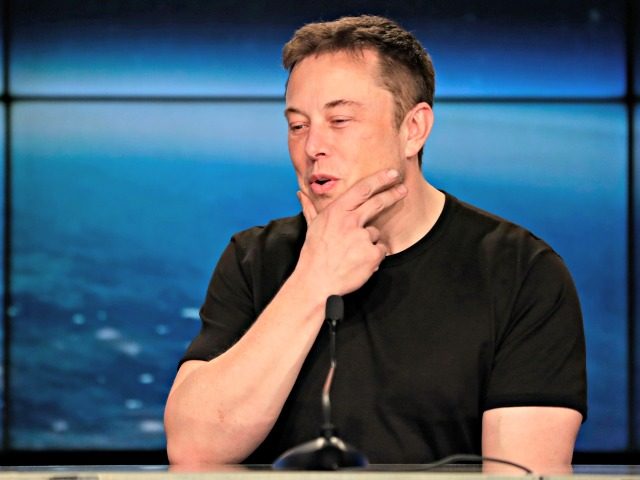A new analysis of data from crashes involving Tesla vehicles has reportedly refuted claims previously made by the National Highway Traffic Safety Administration (NHTSA) about the safety of Elon Musk’s electric vehicles. The Analysis finds that rather than the Tesla autopilot feature reducing airbag deployments by 40 percent as the government claims, it actually resulted in nearly a 60 percent increase in airbag deployments.
Safety Research & Strategies Inc. reports that a new analysis of data related to car crashes involving Tesla vehicles autopilot feature has brought into question previous claims made by the NHTSA about the safety of Tesla vehicles. The government originally claimed that the autopilot feature reduced crashes by about 40 percent, while the new analysis finds a 59 percent increase in airbag deployments.
On May 7, 2016, a Tesla driver named Joshua Brown was killed when his 2015 Tesla Model S vehicle in Autopilot mode collided with a tractor-trailer in Williston, Florida. A month later, an investigation into Tesla’s Automatic Emergency Braking system and the modifications made by the company to its autopilot system was opened by the NHTSA. After six months, the Preliminary Evaluation by the Office of Defects was closed with seemingly no issues found; rather Tesla’s Autopilot system was praised as extremely safe with airbag deployments in Tesla vehicles with Autosteer dropping by 40 percent following the installation of the technology.
A new analysis of the same data by Randy Whitfield, of Quality Control Systems (QCS) Corp. has, however, taken issue with the NHTSA’s findings. Whitfield’s investigation actually found the opposite of the NHTSA’s claims to be true; the airbag deployment crash rate in Tesla vehicles actually increased by 59 percent following the installation of Autosteer technology.
Whitfield concluded in his report: “Our replication of NHTSA’s analysis of the underlying data shows that the Agency’s conclusion is not well-founded.” Sean Kane, the president and founder of Safety Research & Strategies Inc. was extremely critical of the NHTSA following the report stating:
NHTSA has shown its unwillingness to regulate the safety of the electronics that control modern vehicles and to properly assess potential safety defects in increasingly complex vehicles. This once-storied public health agency, built on epidemiological principles, now resorts to hiding data and promoting the business interests of companies they were entrusted with regulating as it promotes autonomous vehicles and surrenders its oversight role in favor of industry ‘guidance.’
According to the report, the NHTSA never actually requested airbag deployment rates in their Information Request to Tesla during their investigation, which made their heavy reliance on this data as proof of the car’s safety quite odd. Despite this, Tesla regularly touted the NHTSA’s claims that Tesla’s autopilot reduced airbag deployments by 40 percent for over a year.
But Whitfield found during his investigation that: “the actual mileage at the time the Autosteer software was installed appears to have been reported for fewer than half the vehicles NHTSA studied.” The NHTSA studied 43,781 vehicles during the investigation, of those vehicles only 5,714 vehicles (13 percent) had the complete mileage data and driving experience before and after installing Autosteer. For any data missing the Autosteer installation mileage number: “NHTSA treated the exposure mileage that could not be classified as either before or after the installation of Autosteer as if it were zero mileage.”
Whitfield explained why this is a problem stating: “This results in an undercount of the denominators. The problem is the under-count affected the “before” category much more than it did the “after” category.”
Gaining access to the NHTSA data to complete a new analysis was not easy. In fact, it took Whitfield and a lawyer about two years to receive the data used to conduct the NHTSA investigation. During this time Whitfield and his lawyer filed multiple FOIA requests and finally, an FOIA lawsuit in U.S. District Court which they ultimately won resulting in Whitfield receiving the NHTSA data.
In their article, Safety Research $ Strategies published a section titled “moral of the story” which explains why the NHTSA’s failing in the investigation of Tesla is not just bad for them as an organization, but also has a negative effect on consumers:
Last May, an American Automobile Association (AAA) released the results of its latest survey tracking consumer trust in automotive autonomous technology, and found that it has “quickly eroded. Today, three-quarters (73 percent) of American drivers report they would be too afraid to ride in a fully self-driving vehicle, up significantly from 63 percent in late 2017. Additionally, two-thirds (63 percent) of U.S. adults report they would actually feel less safe sharing the road with a self-driving vehicle while walking or riding a bicycle.”
And stories like this aren’t going to move the numbers upward.
NHTSA owes its public health mission and the driving public its due care and transparency in guiding the transition. Instead, the agency has let the industry auto-steer us towards their next big business model, while cheering from the sidelines.
We can only hope the burns sustained from the exploding 40-percent claim will discourage NHTSA in the future from throwing out statistical spitballs, providing automakers with marketing copy and trying to hide from independent investigators.
Read more on this case at Safety Research & Strategies Inc. here.
Lucas Nolan is a reporter for Breitbart News covering issues of free speech and online censorship. Follow him on Twitter @LucasNolan or email him at lnolan@breitbart.com

COMMENTS
Please let us know if you're having issues with commenting.